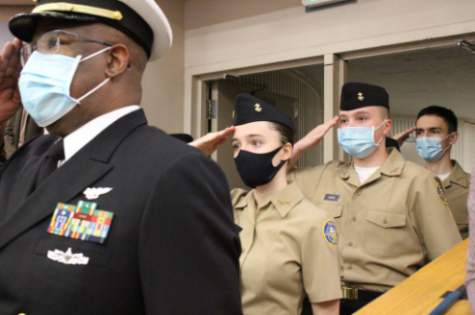How To: Survive Finals Week
As January is coming to a close, students are reminded that the end of the semester is approaching. It’s a relief and exciting time because it means new classes, and possibly a new lunch, for some. However, the last week of the semester can also be a student’s most stressful part of the year. Teachers use this last week, including the two days labeled as “Finals Days”, as the perfect time to test you before end-of-semester grades are finalized. This means essays, projects, speeches, and tests crammed into one hectic week.
To help you get through the mess of the end-of-the-semester, here are some helpful tips and advice for preparing for and surviving finals week.
1. Mark down all the due dates and test dates in an agenda or calendar.
Using your agenda or calendar will not only help you feel more organized and aware of what’s happening in that last week, but it will also help you prioritize which classes to focus on first. If an English essay is due sooner than a chemistry lab, focus on the essay first. Many students tend to cram because they aren’t prioritizing their work effectively. Make sure to allot specific times to studying, and take into account how long it will take you to finish working.
2. Take finals week in small steps.
For example, if you have a project you know is going to take you three days to finish, spend 30 minutes on it each day so that you don’t cram it in all in one night. If you are studying for a test, try studying one chapter or lesson each day. By preparing ahead of time and in smaller portions, you won’t feel time-constricted and might even retain the information more effectively.
3. Check your grades and meet with teachers accordingly.
This is the important time to see how your grades are doing because these last assignments and tests are your last shot at changing your grades. It’s also the time to finish missing assignments, retake quizzes, and inquire about extra credit. If you ever need more help with an assignment or understanding a topic, meet with a teacher. They will probably appreciate you finishing your work or taking the time to improve your learning.
4. Learn in a way that works best for you.
According to Bepko Learning Center (http://blc.uc.iupui.edu/academic-enrichment/study-skills/learning-styles/3-learning-styles), there are three types of learners: visual, auditory, and kinesthetic. If you remember better by making diagrams or seeing pictures, create those as studying devices. If you’d rather discuss confusing concepts with others, try forming study groups. If you need to do something while learning, take breaks in between your studying to exercise or stretch.
5. Stay healthy and focused.
Eating regularly and getting enough sleep (the healthy range is from 6-8 hours) will ensure that you can stay focused, awake, and prepared for finals week. The last thing you would want to happen is space out on what you studied because you are tired. It also helps to be as focused as you can possibly be while studying. For some students, that may mean turning of the TV, radio, and working in someplace quiet. It might mean banning yourself temporarily from your phone. Whatever the case, you know your limits and what makes you lose your focus, so don’t overstep your boundaries.
By following these tips and advice, hopefully you’ll successfully survive finals week. Good luck and study hard Tides!










